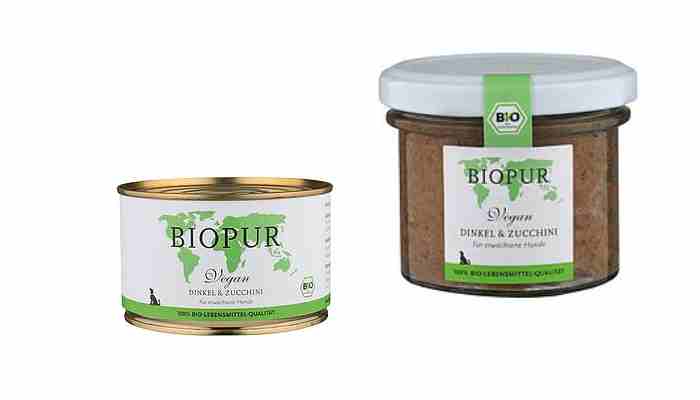As veganism continues to gain popularity among humans, it’s not surprising that some pet owners are also considering a vegan diet for their furry companions. While dogs are omnivores and can survive on a diet that includes both animal and plant-based foods, some may have health conditions that require a vegan diet. However, it’s essential to ensure that your dog receives all the necessary nutrients for optimal health. In this guide, we will explore the nutritional requirements for dogs on a vegan diet, the benefits and challenges of a plant-based diet, and how to plan and prepare balanced meals for your canine friend. So, let’s dive in and learn more about the world of vegan diets for dogs.
I. Nutritional Needs of Dogs
As a dog owner, ensuring that your furry friend gets the proper nutrition is essential for their overall health and well-being. Dogs require a balanced diet that includes all the necessary macronutrients and micronutrients to keep them healthy and active. Among the essential nutrients are protein, fat, carbohydrates, vitamins, minerals, and water. These nutrients help in maintaining muscle and bone structure, providing energy, and supporting immune function, among other functions.
Protein is an essential nutrient for dogs as it helps build and repair muscles and tissues, support the immune system, and maintain a healthy coat and skin. Vegan sources of protein for dogs include soybeans, lentils, beans, peas, and chickpeas. However, these plant-based sources are often incomplete, meaning they lack some essential amino acids. Therefore, it’s important to combine different protein sources to ensure your dog gets a complete amino acid profile. Additionally, dogs require higher protein intake than humans, so it’s crucial to provide enough protein in their diet.
Fat is an important source of energy for dogs and also helps in the absorption of vitamins and minerals. Plant-based sources of fat include flaxseed oil, canola oil, sunflower oil, and coconut oil. It’s important to note that dogs require a higher level of fat in their diet than humans, but too much fat can lead to obesity and other health issues.
Carbohydrates are a good source of energy and fibre for dogs, and vegan sources of carbohydrates include sweet potatoes, brown rice, quinoa, and oats. Dogs do not require as many carbohydrates as humans, and too many carbohydrates can lead to weight gain and other health issues.
Vitamins are essential for maintaining a healthy immune system, skin, and coat. Some vegan sources of vitamins include vegetables like spinach, kale, and carrots, and fruits like apples and bananas. However, some vitamins are not present in plant-based sources and need to be supplemented. Vitamin B12, for example, is found only in animal-based foods, so it’s important to provide supplements or fortified foods that contain this vitamin.
Minerals are important for bone health, maintaining electrolyte balance, and other functions. Plant-based sources of minerals include legumes, leafy greens, and whole grains. However, some minerals, like calcium, are not well-absorbed from plant sources, so it’s important to supplement the diet with sources like fortified vegan milk or supplements.
Water is the most important nutrient for dogs, and it’s essential to ensure that your dog has access to clean and fresh water at all times. Adequate water intake is necessary for proper digestion, absorption, and transportation of nutrients, and maintaining body temperature.
II. Vegan Diets for Dogs
Vegan diets have become increasingly popular in recent years, not just for humans, but for their pets as well. One of the main advantages of a vegan diet for dogs is that it eliminates the need for animal products, which can be ethical concerns for some pet owners. Vegan diets can also help reduce a dog’s environmental footprint and may even have health benefits for some dogs with certain medical conditions.
Switching your dog to a plant based diet can come with potential challenges. Dogs are naturally carnivorous and have specific nutritional needs that may be more challenging to meet on a plant-based diet. For instance, vegan diets may not provide sufficient amounts of essential amino acids, leading to malnutrition or other health issues. Additionally, vegan diets may not provide the appropriate balance of macronutrients, such as protein and fat, which are crucial for a dog’s overall health.
Before switching to a vegan diet, it’s important to consider various factors. For instance, your dog’s age, size, activity level, and overall health are essential considerations. A vegan diet may not be suitable for all dogs, and some may require additional nutritional supplements or even a mix of plant-based and animal-based foods to ensure adequate nutrient intake. It’s always recommended to consult with a veterinarian before switching your dog to a new diet, as they can provide guidance on your pet’s specific nutritional needs.
While dogs primarily derive protein from animal sources, there are a variety of plant-based proteins that can provide adequate nutrition for your dog. Some excellent sources of plant-based protein include legumes, such as lentils and chickpeas, as well as grains like quinoa and brown rice. Soy and pea protein are also popular vegan protein sources for dogs. It’s essential to ensure that these proteins are appropriately balanced with other macronutrients, such as fat and carbohydrates, to ensure that your dog’s dietary requirements are met. Additionally, supplementing your dog’s diet with essential vitamins and minerals can help ensure that they receive all the nutrients they need.
The nutritional requirements for dogs on a vegan diet are complex and require careful consideration. While there are advantages to a plant-based diet for dogs, it is important to address any potential challenges and ensure that their diet meets all their nutritional needs. Before making the switch, it is important to consult with a veterinarian and consider factors such as the dog’s age, activity level, and overall health. With proper planning and attention to their diet, it is possible for dogs to thrive on a vegan diet.



